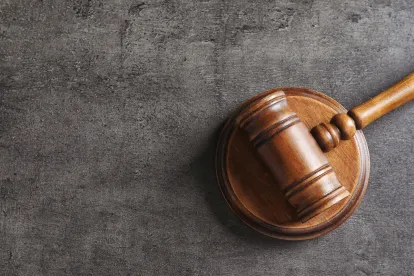Federal district courts in Florida continue to be at odds over whether a class plaintiff who claims to have suffered a past injury based on a defendant’s violation of the Florida Deceptive and Unfair Trade Practices Act (FDUTPA) can pursue a claim for injunctive and declaratory relief in the absence of an allegation that the particular plaintiff is likely to suffer future injury or had suffered a past injury that is not redressable by a monetary award. Two decisions issued by judges of the Southern District of Florida on back-to-back days illustrate this conflict.
The court in Weiss v. General Motors LLC, No. 1:19-cv-21552, 2019 WL 5394621 (S.D. Fla. Oct. 22, 2019) found that a class plaintiff had Article III standing to pursue injunctive and declaratory relief on a FDUTPA claim even in the absence of an allegation that he had a threat of a future injury or had suffered damages that could not be redressed by monetary relief. Specifically, the court found:
Count IV also seeks injunctive and declaratory relief. (ECF No. 1 at ¶ 179.) The Defendant moves to strike these allegations because the Plaintiff does not have standing to pursue a Rule 23(b)(2) class where there is no threat of future injury and all of Plaintiff’s claims are redressable by a damages award. “Defendants are confusing the requirements for injunctive or declaratory relief under federal statutes with the quite different requirements under the FDUTPA.” Galstaldi v. Sunset Communities USA, LLC, 637 F. Supp. 2d 1045, 1057 (S.D. Fla. 2009). The FDUTPA statute states as follows:
Without regard to any other remedy or relief to which a person is entitled, anyone aggrieved by a violation of this part may bring an action to obtain a declaratory judgment that an act or practice violates this part and to enjoin a person who has violated, is violating, or is otherwise likely to violate this part.
Fla. Stat. § 501.211(1). A plain reading of the statute indicates that the Plaintiff is entitled to declaratory and injunctive relief “without regard to any other remedy or relief to which a person is entitled.” Id. “There is no requirement that a plaintiff show an ongoing practice or irreparable harm, and declaratory relief is available regardless of whether an adequate remedy at law also exists.” Galstaldi, 637 F. Supp. 2d at 1057.
However, the very next day, a judge in the same court found differently. In In re Monat Hair Care Products Marketing, Sales Practices & Products Liability Litigation, No. 1:18-md-02841, 2019 WL 5423457 (S.D. Fla. Oct. 23, 2019), the court found:
In their FDUTPA and alternate state consumer protection claims, Plaintiffs ask the Court to enjoin Defendants’ unlawful practices. Defendants argue that Plaintiffs have no constitutional standing to seek injunctive relief. The Court agrees. Plaintiffs clearly alleged in the Complaint that they would not have purchased the Products had they known of the harm. Therefore, Plaintiffs do not intend to purchase the Products in the future. “Although the FDUTPA allows a plaintiff to pursue injunctive relief even where the individual plaintiff will not benefit from an injunction … it cannot supplant constitutional requirements. Article III of the Constitution requires that a plaintiff seeking injunctive relief allege a threat of future harm.” Dapeer v. Neutrogena Corp., 95 F. Supp. 3d 1366, 1373 (S.D. Fla. 2015).
Adding to the confusion, the judge who issued the opinion in Monat did not cite to his own published ruling that a class plaintiff in this situation (past harm without an allegation of future harm) did indeed have standing to pursue injunctive claims under the FDUPTA. Cox v. Porsche Fin. Servs., Inc., 330 F.R.D. 322 (S.D. Fla. 2019).




 />i
/>i

